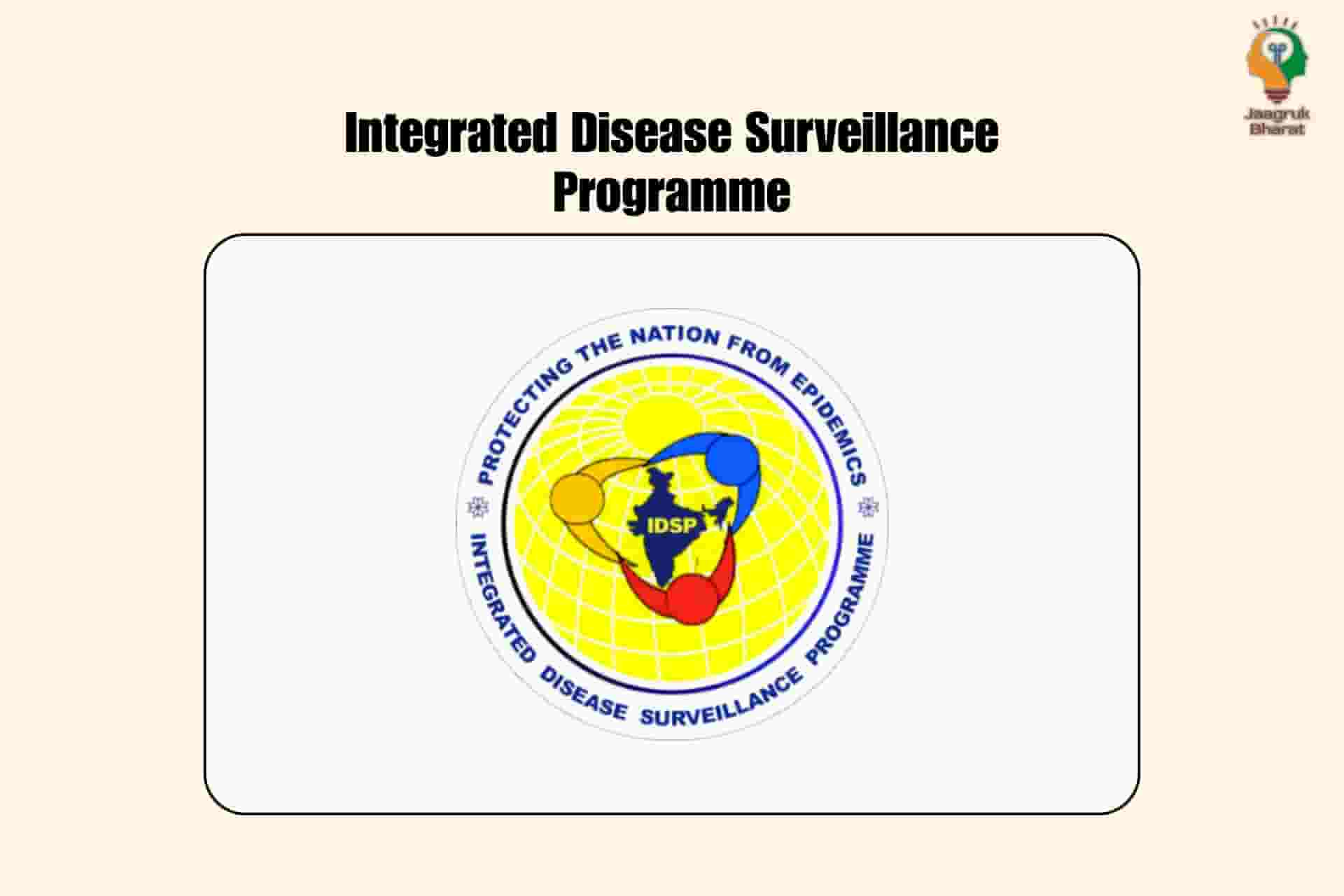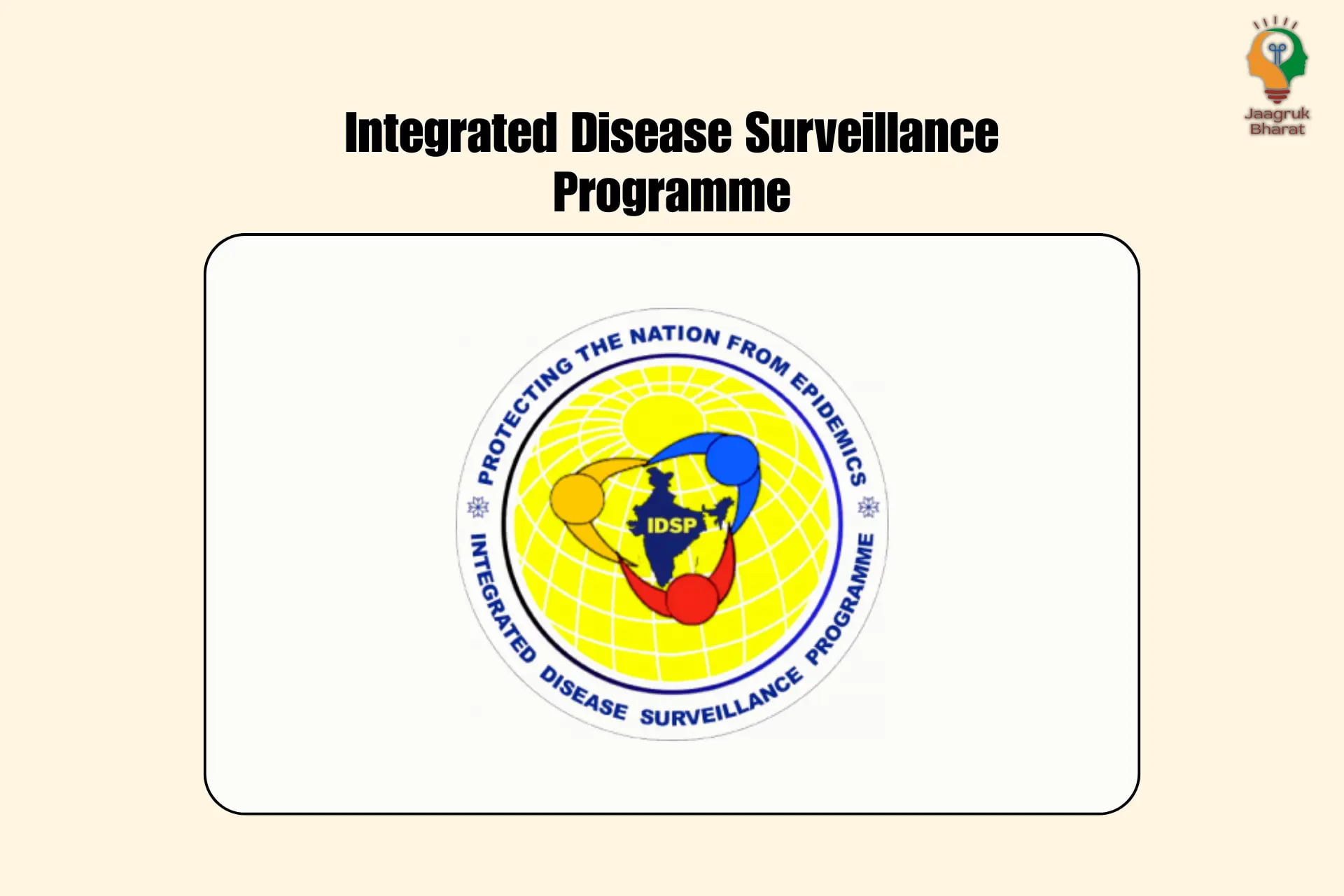Integrated Disease Surveillance Programme: Disease Management In India
Updated: 13-10-2025 at 6:52 AM
1k


In today's unpredictable and uncertain world, human beings face numerous risks and vulnerabilities, including disease. It is crucial to identify and detect a person's vulnerability to a disease as early as possible to safeguard their life.
In 2004, the Ministry of Health & Family Welfare (MoHFW) managed the National Centre for Disease Control, under which the government of India introduced the Integrated Disease Surveillance Programme (IDSP). It is a comprehensive database of health-related information about people, enabling the identification, prevention, and prediction of diseases.
| Feature | Details |
|---|---|
| Feature | Details |
| Launched by | Ministry of Health & Family Welfare (MoHFW), Government of India |
| Launch Year | November 2004 |
| Full Form | Integrated Disease Surveillance Programme |
| Primary Objective | It is crucial to identify and manage disease outbreaks promptly. |
| Key Components | They are responsible for data collection, analysis, training, and inter-sectoral coordination. |
| Budget | ₹640 crores (12th Plan under NHM) |
Read more: Narayana Health Insurance
What Is The Integrated Disease Surveillance Programme?
IDSP is an organised and systematised approach that collects, analyses, and interprets health-related data, specifically of infectious diseases. It works by integrating numerous disease-related software and monitoring systems to improve the tracking and management of disease outbreaks.
It is a key tool in the early detection of diseases so that professionals can start working on their prevention. IDSP has helped detect various disease outbreaks, such as tuberculosis, malaria, HIV/AIDS, COVID-19, Ebola, and others.
Read more: Another Case Of MPox In India
Objectives
The primary goal of IDSP is to fortify the nation's citizens by monitoring diseases and preparing for potential future challenges. Some of its key objectives are:
-
Early detection: Various laboratories and scientists under IDSP continuously work on disease surveillance and research for their cures by conducting research and compiling comprehensive reports.
-
The program is establishing public health infrastructure, including laboratories and training programs, to enable professionals to work effectively.
-
Training: The program works on the ground level and provides training to healthcare workers, professionals, researchers, and public health officers to be able to identify the signs and symptoms and report accordingly.
-
Community engagement: IDSP promotes and encourages people to communicate with the local authorities and communities to immediately share if they are facing any symptoms or problems in their health.
-
The system collects data from various healthcare facilities across the country for an accurate study and to publish reports on time.
-
Monitoring trends of diseases: The program consistently works on keeping a watchful and aware eye on diseases to establish common points or trends, if any, to design effective and quick preventive measures.
-
International collaboration: As diseases aren’t like humans, no one can stop them by establishing boundaries. IDSP promotes working in partnership with various global health organisations to share their data, and reports, and manage cross-border disease outbreaks.
Programme Components
The program includes various components to strengthen healthcare and disease surveillance. These focus on improving infrastructure, training, and coordination across sectors. Here are the main components:
-
Surveillance Units: Establishment of central surveillance units (CSU), state surveillance units (SSU), and district surveillance units (DSU) for decentralised operations.
-
Human Resource Development: The Training and Capacity Development of Surveillance Officers, Health Workers, Healthcare Providers, and Rapid Response Teams (RRTs).
-
Data Management: The collection, analysis, storage, and dissemination of data through ICT resources for efficient and timely reporting.
-
Laboratory Strengthening: Establishing and Building the Diagnostic Capacity in the Districts and States.
-
Inter-Sectoral Coordination: This involves other sectors engaging and working together to address other zoonotic diseases such as AIV and H1N1.
Need For IDSP
In a country like India with its vast population, tracking and controlling diseases is critical. The IDSP addresses key challenges, such as:
-
Rapid urbanisation is increasing exposure to new diseases.
-
Global connectivity increases the risk of cross-border disease outbreaks.
-
Limited Resources: The need for efficient disease monitoring systems is paramount.
Read More: HPV Vaccine: Shield Against Cervical Cancer
Diseases And Conditions Covered Under IDSP
The IDSP monitors and tracks diseases that can cause outbreaks to prevent their spread. It focuses on both common and serious health conditions. Here are the diseases covered under the government program:
-
Acute Diarrhoeal Diseases (ADD)
-
Dengue and malaria
-
Tuberculosis
-
Measles and chickenpox
-
HIV/AIDS
-
COVID-19
-
Cholera and food poisoning.
IDSP Portal
The IDSP Portal serves as an effective digital platform for monitoring and managing disease outbreaks. It helps in data reporting, trend analysis, and coordination. Here’s what the portal offers:
-
Real-time data entry and reporting.
-
Analysis of disease trends.
-
Training modules for healthcare professionals.
-
Outbreak reporting and response coordination.
Insight Into The Integrated Disease Surveillance Project
IDSP is a small but critical part of integrating disease surveillance systems globally. The Integrated Disease Surveillance Project is a unified platform that brings together government agencies, non-governmental organisations, and internal health bodies to identify, prevent, and predict any disease outbreaks.
Conclusion
The Integrated Disease Surveillance Programme (IDSP) is part of a bigger mission, and that is to protect the people, no matter their location, from any disease outbreak in the future. It brings all the nations together and provides them a universal platform to work and protect the human species from the deadly grasp of diseases.
You can also reach out to Jaagruk Bharat through their community page with any questions that you might come across.
Government Sources
Frequently Asked Questions
0
0
1k
0
0
1k Views
0
No comments available





Our Company
Home
About
T&C
Privacy Policy
Eula
Disclaimer Policy
Code of Ethics
Contact Us
Careers
Cancellation & Refund Policy
Categories
Women
Insurance
Finance
Tax
Travel
Transport & Infrastructure
Food
Entertainment
Communication
Government ID Cards
E-commerce
Traffic guidelines
Miscellaneous
Housing and Sanitation
Sports
Startup
Environment and Safety
Education
Agriculture
Social cause
Employment
Disclaimer: Jaagruk Bharat is a private organization offering support for documentation and government scheme access. We are not affiliated with any government body. Official services are available on respective government portals. Our goal is to make processes easier and more accessible for citizens.
All Copyrights are reserved by Jaagruk Bharat